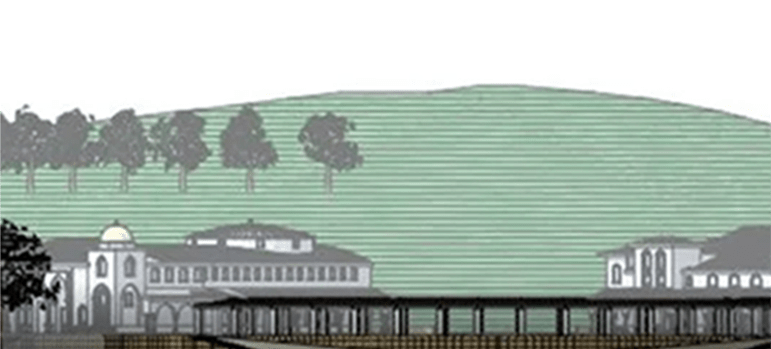The Santa Clara County Board of Supervisors has unanimously declared its intent to deny two appeals for a San Martin mosque and cemetery approved earlier this year. Supervisors agreed that the Planning Commission’s approval of South Valley Islamic Community’s Cordoba Center was consistent with zoning and other requirements.
Peoples Coalition for Government Accountability and San Martin Neighborhood Alliance each submitted an appeal following the commission’s decision, arguing that the 30,000-square-foot project is too large in scope for the 16-acre site, among other concerns. The opponents also claimed that the cemetery would endanger the local water supply because bodies would be buried without a casket.
While the project’s environmental impact report showed that the cemetery would have “less than significant” impact on the water quality, the supervisors agreed to increase the water moderating program from five years to 10.
Supervisor Mike Wasserman, whose district includes the South County site of the proposal, made the motion to deny the appeals.
“This has been a journey filled with differences of opinions, but at the end of the day the project before us shows both sides have been listened to and respected,” Wasserman said. “Both sides have made compromises and the resulting density and intensity is appropriate and lawful for this particular site.”
The item is expected to come back to the supervisors in February for final approval.
The Cordoba Center is proposed at 14045 Monterey Road in San Martin, near the northwest corner of Monterey Road and California Avenue. The South Valley Islamic Community (SVIC) has been working to get the project approved for more than a decade, after first purchasing the land in 2006. The cemetery would have space for 1,996 graves spread out over time, with a cap of 30 burials per year under mitigation measures.
The proposed center found new life in 2016 with a 15.8-acre plan that included a mosque, community center, cemetery, orchard and children’s camp. The SVIC currently worships in a converted barn in San Martin, with a congregation of about 100 people.
Nearly 30 people spoke at the Tuesday meeting, the majority of whom expressed support for the Cordoba Center.
Rev. Jose Rubio of St. Mary’s Church in Gilroy said the Catholic church’s cemetery averages about 68 burials a year, and disputed claims of some Cordoba Center opponents that the burial cap could be increased over the next five years.
“There are at least 20 times as many Catholics in the county as there are Muslims,” Rubio said. “To think there will be a large number of burials a year is simply unreasonable.”
Sameena Usman of the Council on American-Islamic Relations said the South Valley Islamic Community has spent $3 million throughout the process “without even a brick being laid.” “This community has been waiting for far too long to be able to pray outside of the barn,” she said. “They just want a safe place to pray.”
Multiple speakers in support of the project described the opponents’ actions against the project as “thinly veiled bigotry” and “Islamophobic,” which prompted some members of the San Martin Neighborhood Alliance to deny those claims.
Steven McHenry, the interim president of the alliance who said he was speaking as a private citizen, claimed that residents worry about their drinking water quality. “We welcome people of all faiths in our community,” he said. “A lot of the hateful speech that people have talked about has taken place on social media and not from our organization.”
Kimberly Delgado of San Martin said the opposition is not against the religious institution itself, and is focused solely on the scope of the project. “There’s issues with this project we see that just don’t protect us enough,” she said. “How are you going to assure us that our water is clean?”
Supervisors on Tuesday denied a request to delay the public hearing to a future meeting by the San Martin Neighborhood Alliance.


After the filmed Christmas Day beheadings of 11 Christians in Nigeria and the Somalia car bomb that killed 70, it’s easier to rationalize China’s handling of their Muslim population.